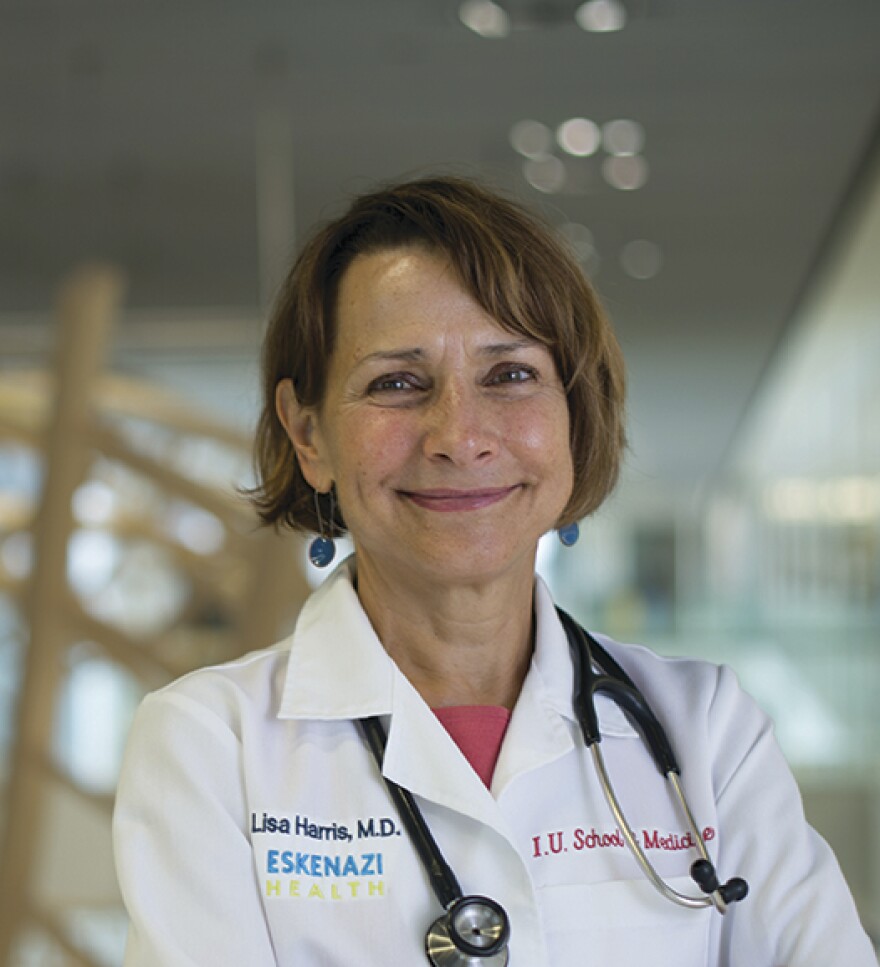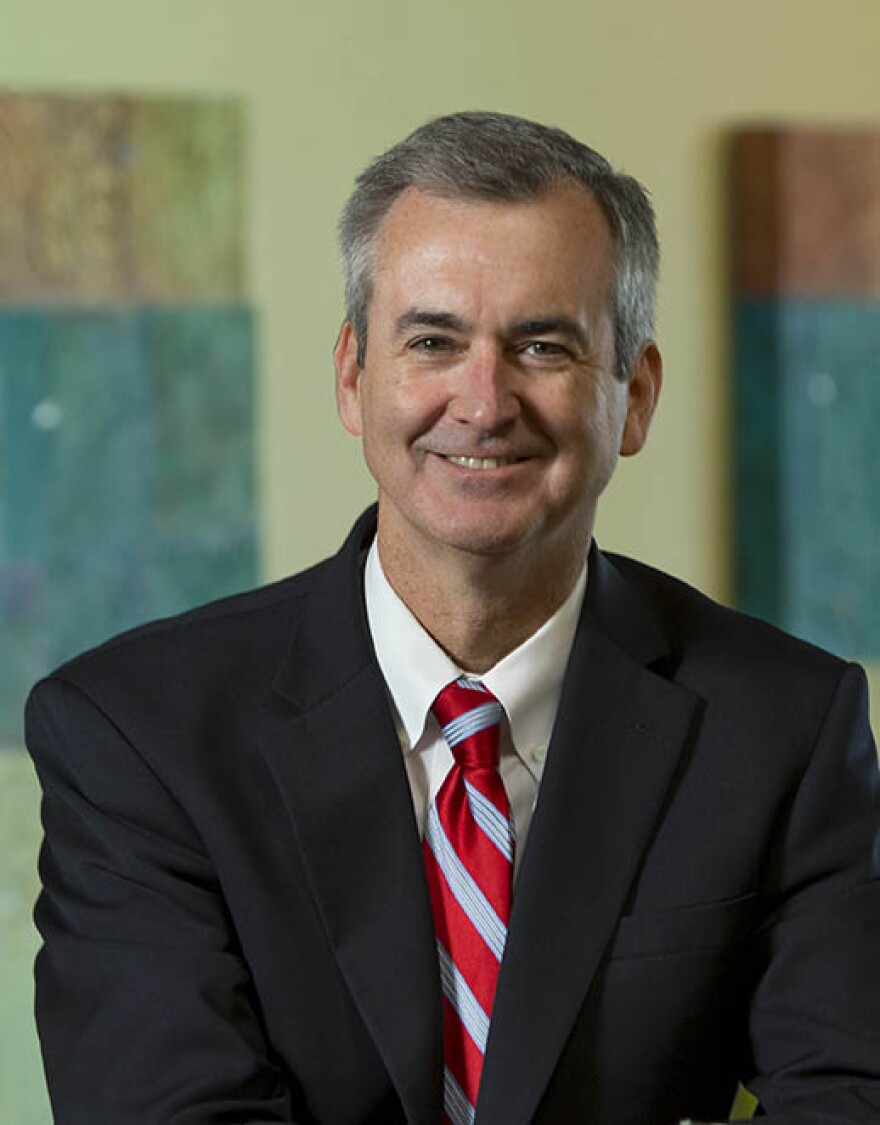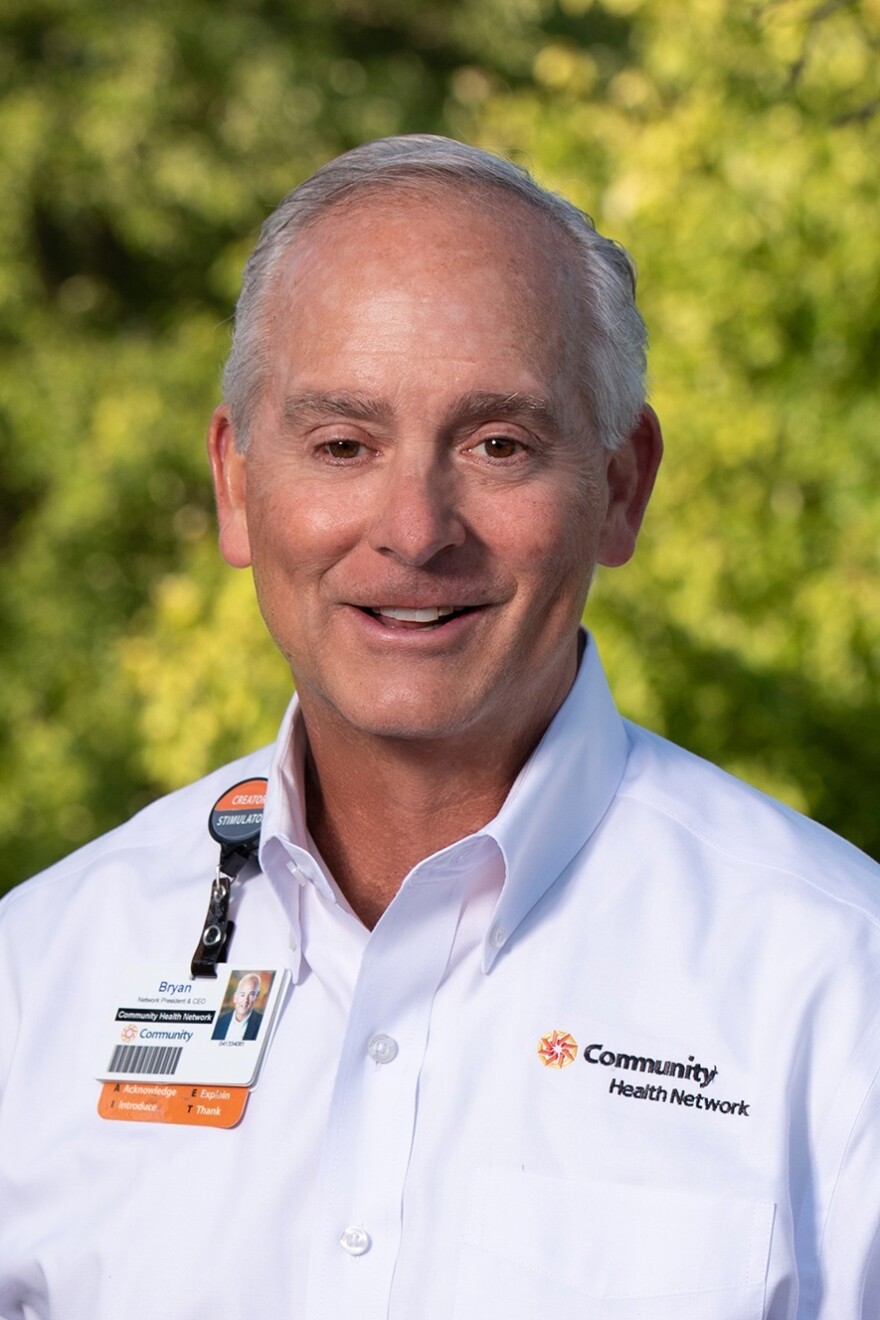Leaders of Indiana’s biggest hospital systems said they have increased staff diversity and put greater emphasis on collecting patient race and ethnicity data over the past year. In a live-streamed public forum Monday night, some said they have also expanded access to mental health services and improved maternal care for Black women.
The forum, titled “Treating Racism as a Public Health Crisis,” was hosted by the Greater Indianapolis NAACP and the Indianapolis Recorder in partnership with WFYI. It’s the second in a series of meetings to track hospital systems’ health equity efforts in Indianapolis. Panelists included the CEOs of Community Health Network, Eskenazi Health, Franciscan Health and Indiana University Health.
The CEOs previously met in January 2021 and promised work on accurate data-gathering, boosting minimum wages and providing more resources to foster diversity, equity and inclusion in the workplace. They identified infant and maternal mortality, diabetes and mental health as key areas to work on.
This year’s forum provided an opportunity for hospital leaders to share their progress toward these goals and respond to questions from the community.
“In a bold step to improve health outcomes for the Black community, the Indianapolis City-County Council declared racism as a public health crisis,” said Chrystal Ratcliffe, president of the Greater Indianapolis NAACP, in her opening statement. “To that end, the CEOs of four local health care networks stepped up and made accommodations to not only address these disparities, but to eradicate them.”
Building a more diverse workforce
Bryan Mills, president and CEO of Community Health Network, said the hospital system hired a new chief diversity officer who reports directly to him and added four new leadership roles to expand DEI education, outreach and belonging and inclusion in the organization. Community Health also added three new board members from diverse backgrounds to its 15-member board.

“I know this sounds like a lot of infrastructure. But if we don't have infrastructure, anything we do will not be sustained,” Mills said.
Dennis Murphy, president and CEO of IU Health, said the organization will launch a new evaluation tool this year, which will include DEI as part of the performance evaluation of staff. Murphy said IU Health has also added eight new positions, including a DEI officer and an officer for health equity. IU Health has also provided more than 46,000 hours of implicit bias training for its staff.
“Our vision was to make Indiana one of the healthiest states, we now always add ‘for all’ as a very simple reminder to everyone,” Murphy said.
Murphy said he is most proud of IU Health increasing its minimum wage to $18 per hour — something he promised to do during last year’s forum.
Eskenazi Health will also boost minimum wage to $18 per hour starting next June. Dr. Lisa Harris, CEO of Eskenazi Health, said the decision represents a $2 million investment.

Eskenazi also now includes DEI goals in their employee appraisals. Eskenazi also added an “upstander” training for clinical providers and staff to make them better allies if they witness anyone experiencing racism or discrimination.
Eskenazi Health also changed its maternal health assessment to identify all Black pregnant women as “high risk”. This ensures that Black mothers-to-be receive the necessary prenatal care designed to reduce risk during pregnancy and delivery. Harris said Eskenazi could have waited for more state data on the issue, but decided to take action now instead.
“I don't want people to think that it's going to be months before we're actually acting on some of this,” she said. “We know that there is an increased risk of mortality in Black women. And so we don't have to wait until we prove that the same is true here.”
Franciscan Health Central Indiana CEO Dr. Jim Callaghan was not part of the first round of discussions in January 2021. But he promised that Franciscan will be adding new equity and inclusion roles this year. He said he also wants to continue to boost engagement with minority- and veteran-owned businesses. Right now, about 29 percent of Franciscan’s supplier business is from verified economically disadvantaged, woman-owned and minority-owned small businesses.

Callaghan added that Franciscan Health owns a construction company, Tonn and Blank, in Michigan City that provides apprenticeships in building trades for community members. He said the company has a big minority representation.
“So it is training seniors in high school or students who've recently graduated from high school to be electricians and carpenters and plumbers, which are in short supply and good paying jobs,” Callaghan said. “And we're looking to move that program to Indianapolis next.”
Mental health
The burden of mental illness falls disproportionately on people of color, and Eskenazi has seen a surge in mental health needs during the pandemic, Harris said.
“Just as we look at our data at the Sandra Eskenazi Mental Health Center, depression and anxiety have risen to our top two diagnoses by a wide margin,” Harris said.
In response, Harris said they started a “collaborative care model,” which means that primary care and mental health care are integrated. The program is led by a physician and a behavioral health primary care provider — both people of color. Harris said this is an attempt to improve access and convenience to mental health care and reduce stigma.
The collaborative care arrangement also serves to boost reimbursement rates at Eskenazi Health’s Federally Qualified Health Center sites, which will allow the hospital system to hire more mental health professionals, she said.
Moving forward
All hospital CEOs promised to report back in another public forum in six months.
Mills of Community said health equity is now an “embedded” goal in his organization.

Murphy of IU Health agreed. He said his biggest priority is maintaining the pace of improvements — especially in the area of inclusion and community-focused initiatives.
“All of us have made a lot of improvements over the past year. None of them are enough. But they're all in the right direction,” Murphy said. “We have to maintain the pace, probably for 20 years, if we really want the outcomes that we're all seeking. This is not a two-, three-, four-year deal. This is going to take us a while.”
Harris of Eskenazi Health promised more work to tackle social determinants of health — factors that affect people’s health outcomes outside of the hospital like housing and access to food.
“You're gonna hear a lot more about that in the next several months from us about several of our health centers, where we are deliberately partnering with individuals within the community to address the needs that are particular to that community that are standing in the way of the opportunity of good health,” Harris said.
Callagan of Franciscan Health promised to establish a “health equity council” in his organization. He also said he will connect with the National Association of Healthcare Executives in Indiana — an organization for black health care leaders — to better inform Franciscan’s future DEI efforts.
This story comes from a reporting collaboration that includes the Indianapolis Recorder and Side Effects Public Media — a public health news initiative based at WFYI. Contact reporter Farah Yousry at fyousry@wfyi.org. Follow on Twitter: @Farah_Yousrym.







